- Home
- Perrin Briar
Flowers vs. Zombies (Book 4): Exigency
Flowers vs. Zombies (Book 4): Exigency Read online
Get Perrin Briar’s Starter Library FOR FREE
Sign up for the no-spam newsletter and get BLOOD MEMORY, Z-MINUS, SQUARE and lots more exclusive content, all for free.
Details can be found at the end of FLOWERS VS. ZOMBIES.
FLOWERS VS. ZOMBIES
Exigency
Perrin Briar
Prologue
THE ISLAND was a speck in the near distance, a tantalizingly close view of the spoils to come. Hidden within its green jungle enfolds was a treasure. An uninfected family for him to vent his frustrations upon. And this time there was no army to stop him.
The Overlord In Black hissed. He pulled his foot from the latest puddle that had developed through the boat’s cracks. The leak had spread to his position at the rear of the small vessel. The boat was old and wouldn’t last much longer on the open sea if it wasn’t for the propulsion-like engines propelling him through the water.
He had strapped a pair of Spinners to the back and let them twist, turn, and thrash. They sped through the water at an unprecedented rate, their flailing limbs giving them the energy he needed to blast across the sea’s surface. They would be at the island in no time, assuming they didn’t sink.
The Overlord In Black’s anger grew more intense the closer they got to the landmass. He could sense the undead there, waiting for him, longing for him. Some already lined the shores in preparation for his arrival. He would seize them and take control.
No one really liked the idea of being a slave, but most liked the idea of being told what to do. They liked the idea of a father figure to take their hand and lead them through the world. They liked to think they were free, thinking for themselves, when they were anything but.
After his recent loss, the Overlord In Black desired nothing more than retribution on those who had wronged him. A traitorous half-breed who had teamed up with a band of uninfected warriors. It was unnatural. It wasn’t done. And yet, it had been.
He would rebuild what he had lost, and this time he would learn to defeat the uninfected traitor, would learn how they thought, how they operated. He would rain rage down upon those who had done him wrong, and he would begin with the family he had discovered on this tiny speck of an island. The Flowers.
Their end had come.
Chapter One
THE CLEARING was thick with long reeds, taller than a fully-grown man. The ground under their feet was soft and marshy, squelching and strong with the smell of fetid water. Bill and the boys lost track of each other the moment they stepped into it.
Bill placed his feet carefully, eyes roving left to right, scrubbing the undergrowth. There were snakes in this long grass, and they were not the type you wished to receive a lover’s kiss. One false step would sign their death warrant.
“Stay close to me,” Bill said to Francis.
At seven, Francis was still too young to go traipsing off into the wilderness by himself. Like all families with a baby, they were overprotective of him. His elder brothers ensured he was always in sight wherever they went, keeping him at arm’s distance from any danger they came upon.
Bill wouldn’t have entered the dangerous location if it wasn’t for the fact some of the greatest treasures on the whole island resided here. Eggs.
Bill had developed a taste for eggs of the wild. They tasted fresher than anything he had experienced before a virus had swept across the world, destroying everything the human race held dear. Civilization, co-dependence, a sense of belonging. But at least Bill had these delicious eggs.
The trick to unearthing the eggs was in not discovering them too late, or else you ended up with a half-developed embryo on your plate. That wasn’t an experience Bill relished repeating. It hadn’t been the most palatable meal in the world. And so he and the others became adept at identifying eggs and how far along the development track they were.
There were more than enough birds and eggs on the island to support the family. They didn’t harvest every egg they came across, and so Bill hoped they wouldn’t have a massive impact on the ecosystem.
And then there were the great range of eggs, each with a different taste. Some were salty and strong, others watery and sour. Bill was tempted to try one of Clementine the ostrich’s eggs, but Liz had warned him against it. Bill didn’t mind. He didn’t have a pan big enough to cook it anyway.
Bill learned to tell the difference between the various eggs and the telltale signs they had printed on their surface, like a schematic. They told him everything he needed to know about how developed they were. They were far more accurate indicators than the use-by dates on products at the supermarket back home.
Each egg developed differently and followed its own timescale. Just as each human fetus developed similarly but at different rates, so too did wild eggs. He learned to identify the blue shade of the Western Bluebird and the brown spots on the underside of the Ash-throated Flycatcher. It became about more than simply developing his egg identifying abilities. It was developing into a passion. Farming was surprisingly interesting.
It was something he was keen to pass along to the boys. It was Fritz who was most interested in ornithology—most likely due to his pet falcon, Beast. But he wasn’t the best at learning. That honor belonged to Ernest, who could absorb information faster than anyone Bill had ever met.
Bill could tell him something on Tuesday, and three weeks later, he could recite it back to him word for word. He not only had an echoic memory, but a photographic one. However, his learning style wasn’t without its flaws. Hand him a piece of rope and ask him to repeat the knot you had just taught him, and he could do it, but slowly. His hands were not up to speed with his brain.
Jack, however, was the one gifted with advanced motor skills. He could do with his hands what Ernest could do with his mind. Jack forgot everything, almost all of the time, but he could perform physical tasks without hesitation. It was easy for him. His hands, so used to climbing trees and sliding up and down vines, had become thick and strong, almost as strong as a grown man’s.
“Boys, come here a minute,” Bill said.
The boys joined him, and peered between the long grass that Bill had pushed aside. There was a nest with four white eggs inside. They were of a similar shape and size, and it was clear they were all from the same bird. But in the middle, lying amongst them, was another egg. This one was larger and black.
“Do you see how it’s a different color to the other eggs?” Bill said.
“Why is it different?” Jack said.
“It’s the black shell of the family,” Fritz said. “Like you.”
“Shut up!” Jack said.
“Sh-sh-sh,” Bill said. “You’ll scare away the game.”
“Then why is it a different color to the others?” Francis said.
“Because it’s not from the same bird as these other ones,” Bill said.
“Which bird is it from?” Jack said.
“A cuckoo,” Ernest said.
Fritz rolled his eyes. The question had been rhetorical. It wasn’t meant to have been answered, especially not by know-it-all Ernest.
“Correct,” Bill said.
“So?” Francis said. “It’s nice of the other birds to take care of it.”
Bill smiled. Children could be so naive and cute.
“The other birds don’t know it’s not their egg,” Bill said. “And this cuckoo egg will hatch first. That means he’ll get more of the food, sometimes eating all of it, and the other chicks will die.”
“Should we do something about it?” Francis said.
“It’s nature,” Bill said. “It’s what happens. If we get involved, perhaps take the cuckoo’s egg away, the other chicks in the nest might
survive, but what about the cuckoo?”
“But it’s evil,” Francis said.
“It’s not evil,” Bill said. “It’s nature.”
Francis frowned, creases on his smooth skin.
“Then why do we fight the bad men?” he said.
He was referring to the undead, who came and roved upon the land, looking for fresh flesh to feed upon. Bill smiled. Francis was trying to piece the world together.
“Because we can think,” Bill said. “And do you think I could stand idly by while you or anyone else in our family might get hurt?”
“Then why don’t the birds do that?” Francis said.
“They would,” Bill said. “If they could. But they weren’t born the same way we were. We can think and feel and rationalize our behavior.”
The frown on Francis’s brow grew deeper.
“In truth, we’re not much better than the cuckoo,” Bill said. “No farmer is. He breeds his crops so only the most yield-bearing will pass on their genes. Now, grab the white eggs before the parents come back and attack us.”
“I don’t want to be like the cuckoo,” Francis said, showing his bottom lip in a show of dislike.
“Of course you don’t,” Bill said. “And we’re not. But the truth is, these chicks are going to die anyway. We might as well make the most of them while we can. They can provide us with breakfast.”
“Why?” Jack said.
“Because the cuckoo will eat all the food,” Bill said. “And if he doesn’t, he’ll push the other eggs out as soon as he hatches. And then the parent birds will feed the cuckoo chick, unwittingly raising an enemy of future generations.”
“That’s stupid,” Francis said. “Why don’t they know it’s not their kid?”
“Because the impulse to protect and raise chicks in their nest is so strong,” Bill said. “It’s instinct.”
“So, why don’t we take the cuckoo egg out?” Francis said.
“Because we shouldn’t get involved,” Bill said. “It’s nature. Besides, cuckoo eggs aren’t delicious.”
Bill had a sour memory of testing out one particular cuckoo egg. He could still taste the rancid flavor of vomit at the back of his throat.
“But we have to do something,” Francis said.
“Oh, we will,” Bill said.
He reached into the nest and took out the native bird eggs.
“If we don’t eat them, they’ll only get pushed out and die anyway,” he said. “This way we make the most of them without wiping out the cuckoos too.”
“I don’t like cuckoos,” Francis said, folding his arms over his chest. “They’re evil.”
“They’re not evil,” Bill said. “They do these things because they don’t know any better. It’s how they’ve learned to survive.”
Bill covered the bird nest with the long grass and turned to his other sons.
“Any luck?” Bill said.
“Only these,” Ernest said.
He came out with two eggs. They were salmon pink with yellow spots.
“The French Warbler,” Bill said. “They’ll go well with your mum’s meal tonight. Jack?”
Jack gestured to the pair of dead rabbits hanging from his waist.
“Good for lunch tomorrow,” Bill said. “Good lad. Fritz?”
His eldest son smiled triumphantly and held in his large hand five spherical eggs.
“Remember our first rule of foraging?” Bill said.
“Don’t pick up anything if you don’t already know what it is,” Fritz said.
“So, what are these?” Bill said.
Fritz pursed his lips and peered at the eggs in his hand.
“Spherical, dark colored shells,” he said. “I’d say they were bee-eaters.”
“Ernest?” Bill said.
Ernest gave the eggs a good look, before his eyes smiled, swiftly followed by the corners of his lips.
“They’re not bird eggs,” he said.
“Then what are they, smarty pants?” Fritz said.
“Snake eggs,” Ernest said.
Fritz turned to Bill, who nodded with acknowledgement. Fritz’s eyes turned wide with shock.
“Go put them back,” Bill said.
“Shouldn’t we smash them?” Jack said. “That way, we won’t have to worry about them anymore.”
“No,” Francis said. “We shouldn’t get involved in nature. Right, Pa?”
“Right,” Bill said, though he wasn’t as sure about that in this case.
Snakes were harmful pests. The worst could kill you with a single bite. Though Bill had been working on developing anti-venom, he was coming up woefully short without the use of modern scientific equipment.
“Let’s head back home,” Bill said.
They turned to leave, their trappings and treasures clutched under their arms. But one of them did not move.
“Jack?” Bill said.
Jack raised a hand to silence his father and turned his head to one side.
“What is it?” Bill said. “Is there something in the foliage?”
He slipped the handle of his knife out of its sheath.
“No,” Jack said. “I thought I heard something…”
“What?” Ernest said.
“A voice,” Jack said. “It sounded like it was shouting…”
And now they all listened intently, closing their eyes so they could concentrate more on what their ears were listening for.
The jungle was almost silent. The wind blew and the leaves clapped, but there weren’t any other sounds of wildlife. It was usually at night when they came out to play.
Jack’s body relaxed.
“Sorry,” he said. “I must have imagined it.”
They turned to head back through the jungle.
A voice.
A shout.
Muffled with distance.
Jack could tell by the expressions on the others’ faces that they had heard it too. Without a word of command from Bill, the family turned and headed deeper into the clutches of the jungle, toward the voice.
Chapter Two
HAD SOMEONE gotten washed up? Had they been accosted by the undead on the island? Bill could imagine their shock now, arriving on this island’s shore, thinking they had finally made it to safety, only to discover it was just as infested as the mainland.
Bill wasted no time, and hustled through the undergrowth, running as fast as his legs could carry him. His sons were on his heels, Fritz moving ahead with the youth and vigor afforded by his younger body.
They heard the rush of water, the waves blasting the sand, the water active today. Feathers of white rose and fell like a flight of dolphins. They stopped again, to listen, and were awarded with another bark, this time the voice much clearer, though the words were not clear.
But they were moving in the right direction. Toward the beach. Then the family paused, hearing the shouts, formed by grunting voices. For a moment, Bill thought his imagination had been right, that this man, whoever he was, had been accosted by the undead on the island. But as he listened longer he realized the voices had a musical quality to them, a rhythm that swam over the sand dunes.
“Get down,” Bill said.
The boys knew better than to ask why. They knew their father wouldn’t have said it if he didn’t mean it. They crouched and continued to move forward, slower this time. They approached an overhang that looked out over the beach below. What they saw took their breath away.
There wasn’t just one man, but a dozen. Most of them were dark skinned, tanned bronze. They were wearing very little, with just a large leaf over their genitals. They had lumps of wood through their faces, piercings and tattoos on every available piece of skin. They were thin but strong, and leapt about as if taking part in some kind of festival. One beat on a drum, producing a low thudding rhythm.
Their attention was entirely on the three members of their party that did not leap and howl with jubilation. There were four men in total. Three were white and stood out a mile. The fo
urth was the same bronze color as the other natives dancing around them.
The natives kicked and punched the figures in time with the music. It was a frenzied, frantic rhythm, the blows raining down. The defending figures raised shoulders and elbows in an attempt at defense, but were not successful.
Bill could hear the slap from where he was. It didn’t sound pleasant. Blood and bruises adorned the figures and they were pulled left and right, led by the ropes around their necks.
Scattered over the ground were human skulls, shattered rib cages and deformed leg bones. Bill did not get the feeling these items had been placed here for decoration, but had been here all along. This was where they had been killed.
“It’s not looking too good for them, is it?” Fritz said.
Two of the white men were fully grown adults. The third, and the native, were around Ernest’s age. The hollering from the natives grew to a crescendo, and then ended abruptly.
Something bad was going to happen.
“We need to do something,” Fritz said.
“I’m sure it’s all for show,” Bill said.
As if they had heard him, the natives dragged the bronze-skinned prisoner to a large rock with an indentation in the top. The natives pushed his head into it. A large native waved a large bone in the air.
“We need to do something!” Fritz said. “Now!”
“This is their culture,” Bill said. “They should do whatever they want to do.”
“What if they kill him?” Ernest said.
“They’ve killed plenty of their own before,” Bill said. “We have no right to get involved.”
The muscular native raised his bone and brought it down on the boy’s head. There was a wet mushy thunk as the bone cleaved through the skull and struck the rock underneath.
The natives let out a howl of merriment. Bill and the boys turned pale.
“If we don’t get involved now, when will we?” Fritz said.
Bill didn’t like the idea of them putting themselves at risk, in harm’s way. It wasn’t like they had a large number of weapons they could overthrow the natives with. They would only succeed in getting themselves killed.

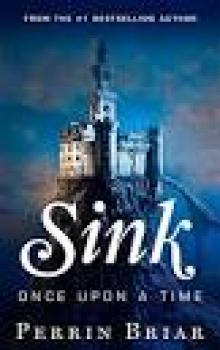 Sink: Once Upon A Time
Sink: Once Upon A Time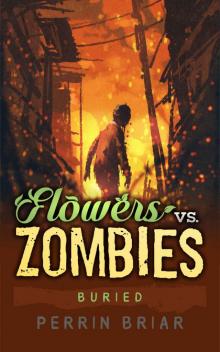 Flowers Vs. Zombies (Book 5) Buried
Flowers Vs. Zombies (Book 5) Buried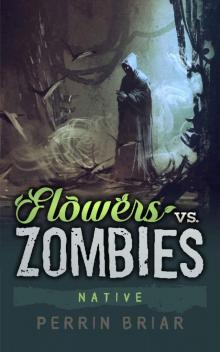 Flowers Vs. Zombies (Book 6) Native
Flowers Vs. Zombies (Book 6) Native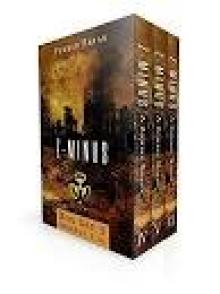 Z-Minus Box Set 2
Z-Minus Box Set 2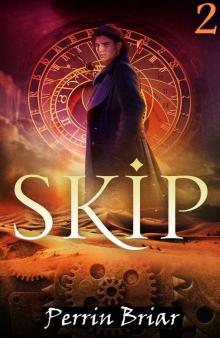 Skip: An Epic Science Fiction Fantasy Adventure Series (Book 2)
Skip: An Epic Science Fiction Fantasy Adventure Series (Book 2)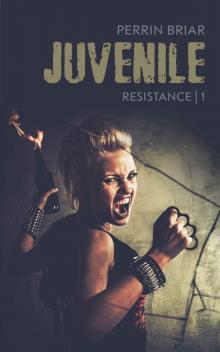 Resistance (Book 1): Juvenile
Resistance (Book 1): Juvenile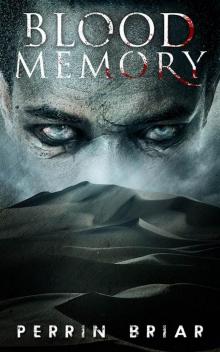 Blood Memory: A Post-Apocalypse Series (Book Five)
Blood Memory: A Post-Apocalypse Series (Book Five)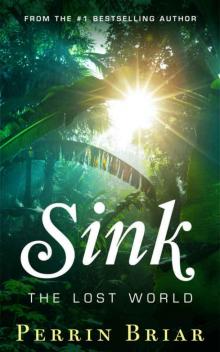 Sink: The Lost World
Sink: The Lost World![Z-Minus Box Set [Books 1-3] Read online](http://i1.bookreadfree.com/i1/03/30/z-minus_box_set_books_1-3_preview.jpg) Z-Minus Box Set [Books 1-3]
Z-Minus Box Set [Books 1-3]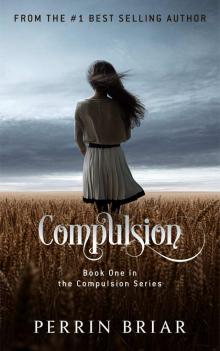 Compulsion
Compulsion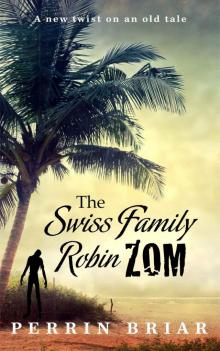 The Swiss Family RobinZOM (Book 3)
The Swiss Family RobinZOM (Book 3)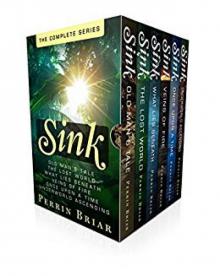 Sink: The Complete Series
Sink: The Complete Series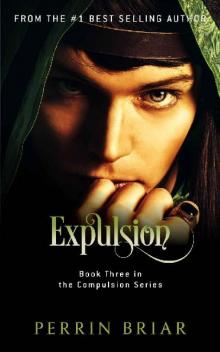 Expulsion
Expulsion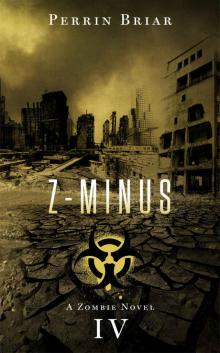 Z-Minus (Book 4)
Z-Minus (Book 4)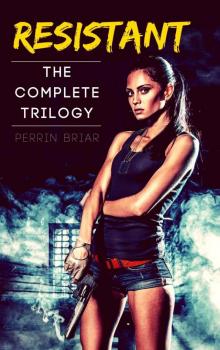 Resistant Box Set
Resistant Box Set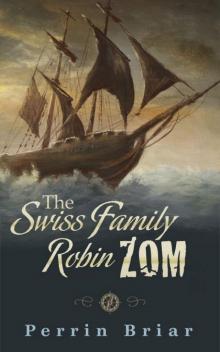 The Swiss Family RobinZOM (Book 2)
The Swiss Family RobinZOM (Book 2)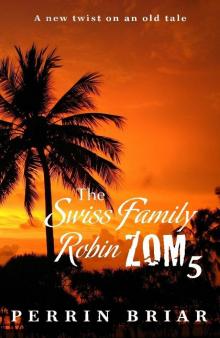 The Swiss Family RobinZOM (Book 5)
The Swiss Family RobinZOM (Book 5)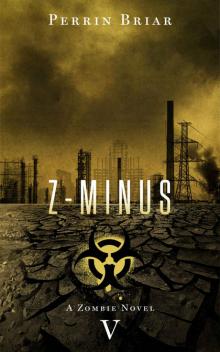 Z-Minus (Book 5)
Z-Minus (Book 5)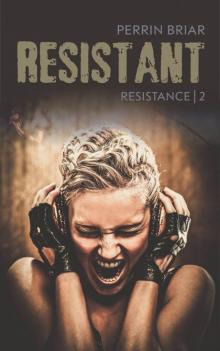 Resistance (Book 2): Resistant
Resistance (Book 2): Resistant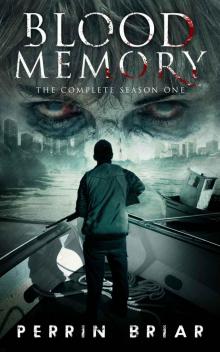 Blood Memory: The Complete Season One (Books 1-5)
Blood Memory: The Complete Season One (Books 1-5)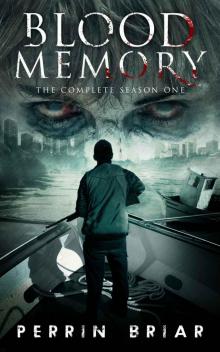 Blood Memory (Season 1): Books 1-5
Blood Memory (Season 1): Books 1-5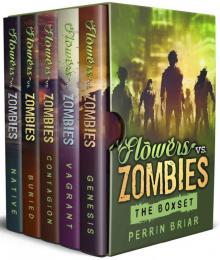 Flowers Vs. Zombies: The Complete Series
Flowers Vs. Zombies: The Complete Series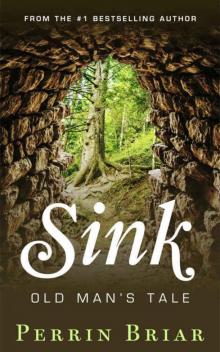 Sink: Old Man's Tale
Sink: Old Man's Tale![Cut Off [Part 1] Read online](http://i1.bookreadfree.com/i2/04/06/cut_off_part_1_preview.jpg) Cut Off [Part 1]
Cut Off [Part 1]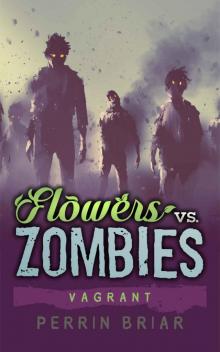 Flowers vs. Zombies (Book 2): Vagrant
Flowers vs. Zombies (Book 2): Vagrant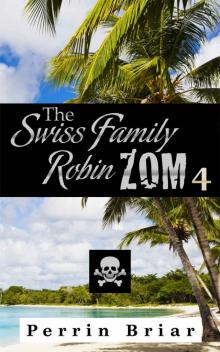 The Swiss Family RobinZOM (Book 4)
The Swiss Family RobinZOM (Book 4)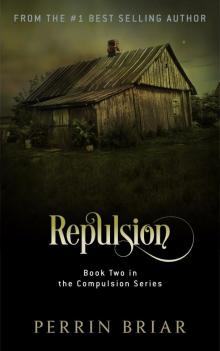 Repulsion (Compulsion Book 2)
Repulsion (Compulsion Book 2)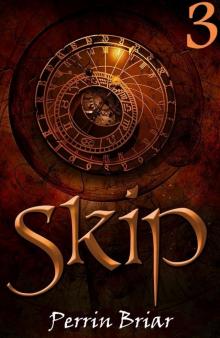 Skip: An Epic Science Fiction Fantasy Adventure Series (Book 3)
Skip: An Epic Science Fiction Fantasy Adventure Series (Book 3)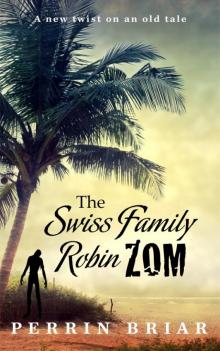 The Swiss Family RobinZOM
The Swiss Family RobinZOM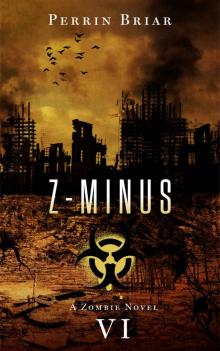 Z-Minus (Book 6)
Z-Minus (Book 6)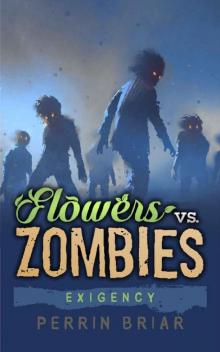 Flowers vs. Zombies (Book 4): Exigency
Flowers vs. Zombies (Book 4): Exigency![[An Epic Fantasy 01.0] Skip Read online](http://i1.bookreadfree.com/i2/04/12/an_epic_fantasy_01_0_skip_preview.jpg) [An Epic Fantasy 01.0] Skip
[An Epic Fantasy 01.0] Skip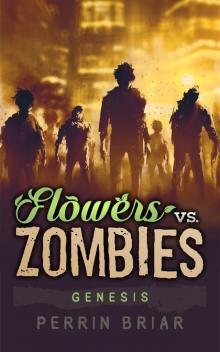 Flowers Vs. Zombies: Genesis
Flowers Vs. Zombies: Genesis